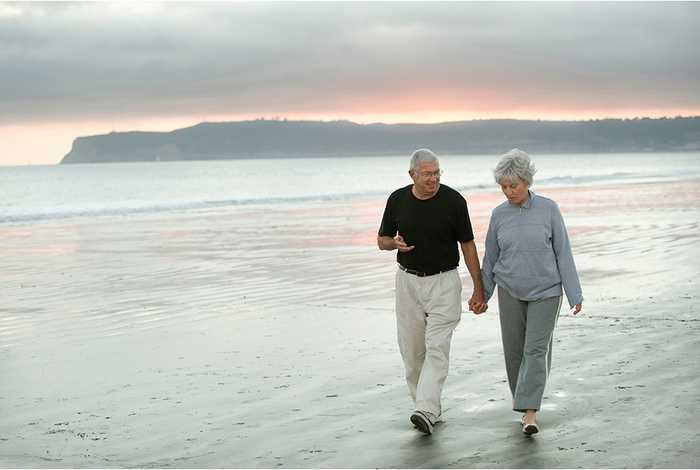Posted by Peter Bewert
Combating loneliness in a world of self-isolation
Autumna would like to thank Peter Bewert, Managing Director of Meaningful Care Matters for this guest blog.
During these times of challenge and ‘strange’, we live our daily lives in an altered state and are all desperate to find a new sense of ‘normal’.
Without doubt the isolation and distancing has revealed people need each other more than ever.
The current pandemic caused by the COVID-19 outbreak has caused untold suffering worldwide and has impacted almost every major industry. More so, it has impacted humanity in a very personal and real way, and like everything, all of humanity has been impacted, albeit in different ways.
The health and social care sector had been hit particularly hard, with the lockdown restricting movement, and heightened infection control, social distancing, social shielding, and self-isolation limiting meaningful contact with others. As humans, we are feeling and social beings designed to not live in isolation alone. Prior to the current lived experience, loneliness was all too common for many people in society. Coupled with the current situation, we are at high risk of a pandemic of loneliness.
In care environments, loneliness is often in abundance. If feelings really matter then it is paramount to ensure the presence of meaningful connections for all of us.
The team at Meaningful Care Matters has listed some of the best approaches to keep and build on meaningful connections between those being cared for, their loved ones, and those caring across the health and social sector:
Utilising technology
It is important to understand that keeping our distance does not mean we can’t communicate and connect with people on a regular basis. We need to be creative with our approach to connection to maintain the art and heart of conversation. Sharing the events of lived experience of the loved ones we live with and those who matter to us, as well as being able to create new meaningful memories, should be facilitated and encouraged. Change can bring innovation and widely accessible technology can be seamlessly integrated into care environments. The stereotype that older generations aren’t adept in using smart tech is quite untrue nowadays (many younger generations are not necessarily adept and this is a pure stereotype!) and many people are proficient in using tablets and smartphones. Those who aren’t tech-savvy can easily be taught or those in their care can set up calls with loved ones for them.
Whether it is for business or leisure, videoconference applications such as WhatsApp, Zoom and Skype can be very helpful in connecting people. They also bring the added benefit of being able to see, hear and feel in real-time to the person on the other end of the device. Particularly for those people living with a dementia, the use of modern technology can bring a sense of familiarity, recognition, and calmness. Being able to see a loved one can create connectedness and meaning through relationships.
Bringing familiarity to PPE – utilising touch and body language
Many of those who work in health and social care would have never imagined they would be donning a mask, gown and other protective wearables to the extent we are wearing these in our current experience of life. This has naturally been seen as a highly clinical approach and can be a barrier reinforcing ‘them and us’. PPE is a fact of life currently, but it does not need to be an excuse for reinforcing a disproportionate ‘them and us’ power imbalance, or a lack of connection which is meaningful, loving and able to ‘cross the bridge’.
Our best tools are ensuring we let the real person shine through the PPE. There is a saying that the eyes are the window to the soul and it’s true that eye contact in western cultures is important. When we consider the soulfulness of feelings, we can certainly show our emotions through our eyes, so even when carers are wearing masks, they can still let their eyes smile. Tone of voice is also a key in providing calmness and showing the real you. Be loud, be proud and be you. Make sure the art of conversation is not impeded by the masks we are wearing, continue to sing, continue to talk and continue to engage.
Just be you and let your personality shine through despite what you wear. By exaggerating visual cues and emphasising the eyes and communicating with heartfelt genuineness, people are more likely to be distracted from your physical appearance and concentrate on what you are communicating to them.
Ultimately, when wearing PPE, it’s about language, tone and a calm, friendly approach to ensure those being cared for are at ease and comfortable with the unfamiliar attire.
Getting creative with communication
Although we can’t physically embrace each other as we used to, this does not mean that all touch is completely banned. Our methods of touch will change and of course, are highly dependent on our relationships and current wellness/health. There may be limitations on visiting our loved ones in a care setting and giving them a physical hug, but, the methods of communication are limitless. From writing letters that are sprayed with recognisable smells such as their or your favourite perfume, to sharing a video diary of the daily lives of children and animals belonging to relatives, let your imagination run wild.
For those that are able to hold conversations through windows, it can be a fun idea to draw on the window using wipeable pens - something people can create together and may stick in the mind of someone with a dementia, boosting positive feelings each time they look at it. Alternatively, you could even plant and look after a ‘windowsill garden’ together.
Overall, by slowing down in what is widely seen as a time of panic, those in the health and social care sector can help ensure residents aren’t forgotten, aren’t just a task, and aren’t left feeling lonely. A little can go a long way and the simplest of meaningful connections can make a huge difference to someone’s daily experiences.
Meaningful Care Matters helps to facilitate the creation, reinvigoration and sustainable implementation of person-centred care cultures where people matter, feelings matter and we are ‘Free to be Me’.
Other articles to read
Autumna Blog

Older Persons Care Advice
How often should a care plan be reviewed?
September 12th, 2025
How often should a care plan be reviewed? In this blog we answer this question, and outline everything you need to know about your care plan.

Older Persons Care Advice
Ultimate guide to retirement villages in Kent
September 10th, 2025
Discover retirement villages in Kent that combine independence, comfort, and community, set within beautiful countryside, towns, and coastal surroundings.

Older Persons Care Advice
How to choose a place to retire
September 10th, 2025
Learn how to choose a place to retire that fits your goals. Find tips on finances, socialisation, safety, and healthcare access for a fulfilling retirement.






